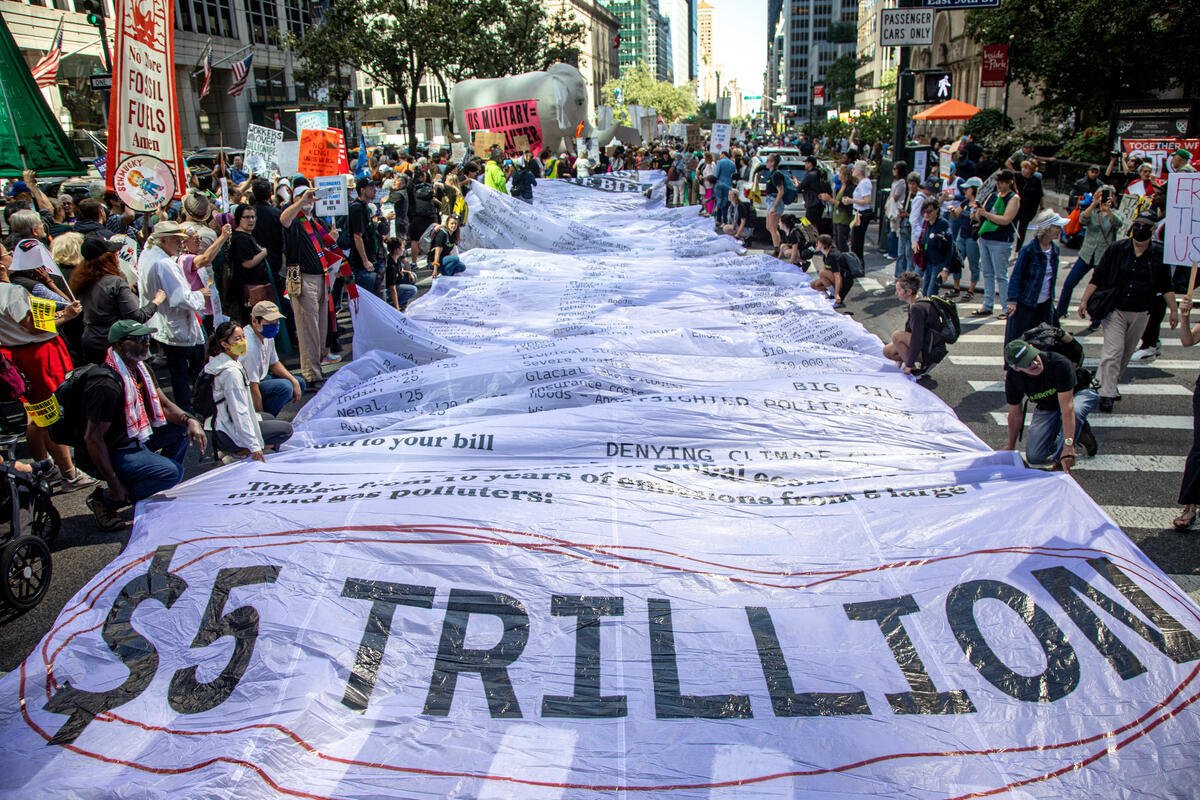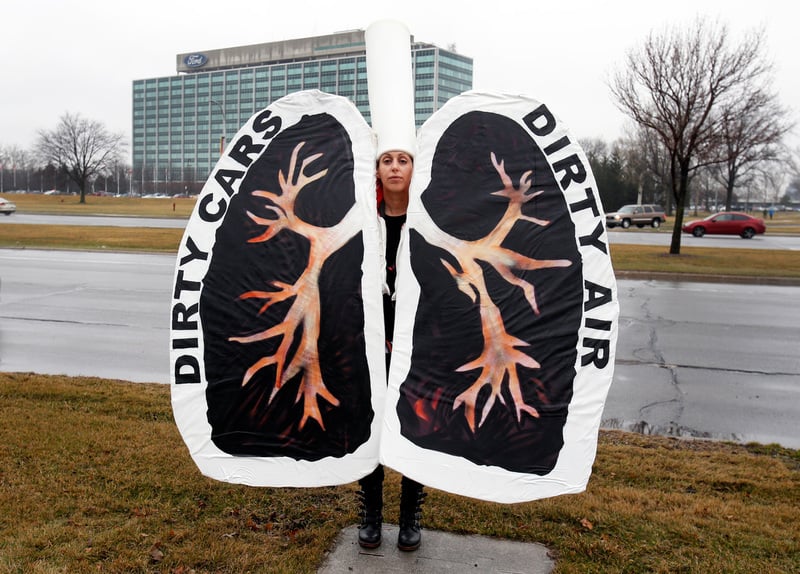We are fed up with fossil fuel companies undermining our democracy and getting in the way of real climate solutions. Remind Congress that they represent the people—not big oil.
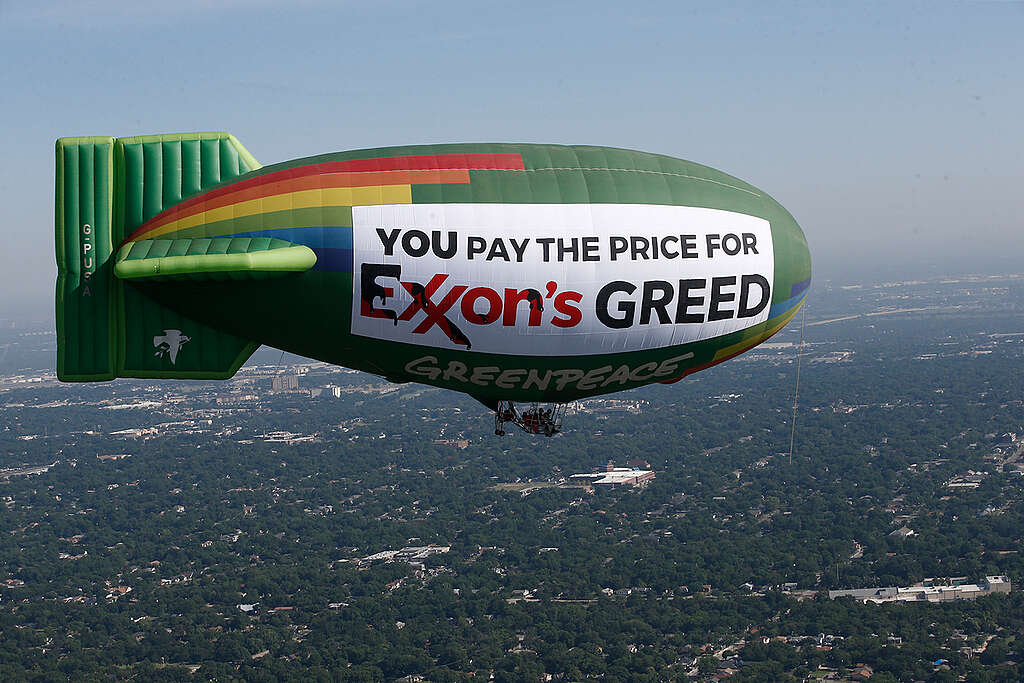
The Greenpeace Thermal Airship A.E. Bates flies over the Dallas, Texas area as part of a campaign confronting Exxon before a shareholder meeting—the perfect opportunity to hold the company accountable for its harmful endeavor of an oil state and oil diplomacy.
On June 30, the UK news network Channel 4 and Unearthed released footage that appears to show Exxon lobbyists admitting to their past and present involvement in undermining climate science and watering down federal solutions to address the climate crisis.
In case you missed it, here are some notable quotes from the investigation.
Let’s kick it off with the bragging about oil industry success during the Trump years:
1. “The wins are such that it would be difficult to categorize them all.”
There was particular emphasis on the 2017 tax bill, which cut the corporate tax rate in the United States significantly from 35 percent down to 21 percent, as “probably worth billions to Exxon.” However, wins were numerous for oil producers like Exxon in the Trump era and that included the appointment of oil-friendly businessmen and politicians in key roles within the administration, with former Exxon CEO Rex Tillerson briefly serving as Secretary of State, Rick Perry heading the Department of Energy, and Scott Pruitt serving as EPA director.
Just because Trump is out of the White House does not mean our work is over. We must now hold President Biden accountable for the climate promises he made on the campaign trail.
2. “When you have an opportunity to talk to a member of Congress, I liken it to fishing, right? You know you have bait, you throw that bait out.”
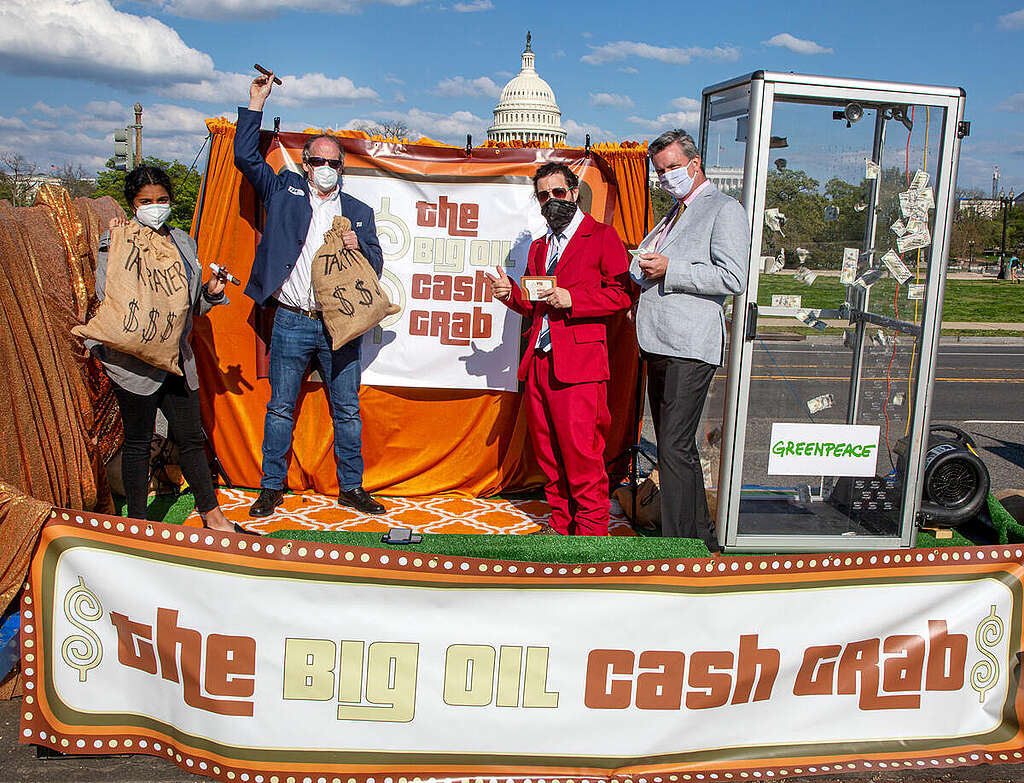
Is this how lobbyists persuade members of Congress?
Across the board, fossil fuel companies are certainly throwing a lot of bait around the halls of Congress. In 2020, the oil, gas, and coal industry spent more than $115 million lobbying Congress in defense of fossil fuel subsidies; currently, the industry receives $15 billion of our tax dollars in direct federal subsidies every year. All told, that amounts to a return on investment of over 13,000% for these corporations annually.
That’s right, our government takes money out of our pockets and gives it to fossil fuel companies. The infrastructure and reconciliation bills give Congress an opportunity to end these subsidies and ensure our tax dollars go towards supporting people, not polluters.
3. “On the Democrats’ side, we look for the moderates on these issues. So it’s the Manchins. It’s the Sinemas. It’s the Testers.”
The lobbyists mentioned 11 key Senators as part of their strategy, a.k.a. the Exxon 11. Of particular interest were 6 moderate Senate Democrats they frequently target—Joe Manchin (WV), Kyrsten Sinema (AZ), Jon Tester (MT), Maggie Hassan (NH), Mark Kelly (AZ), and Chris Coons (DE). Analysis of campaign disclosures, conducted by Oil Change U.S. and reviewed by the Huffington Post, revealed that this group of 6 has received money from lobbyists, PACs, and lobbying firms tied to Exxon over the past decade. The Exxon 11 can claim they aren’t influenced by big oil, but to prove it, they must commit to ending fossil fuel subsidies.
4. “Joe Manchin. I talk to his office every week.”
An Exxon lobbyist went as far as describing Manchin as the “kingmaker.”
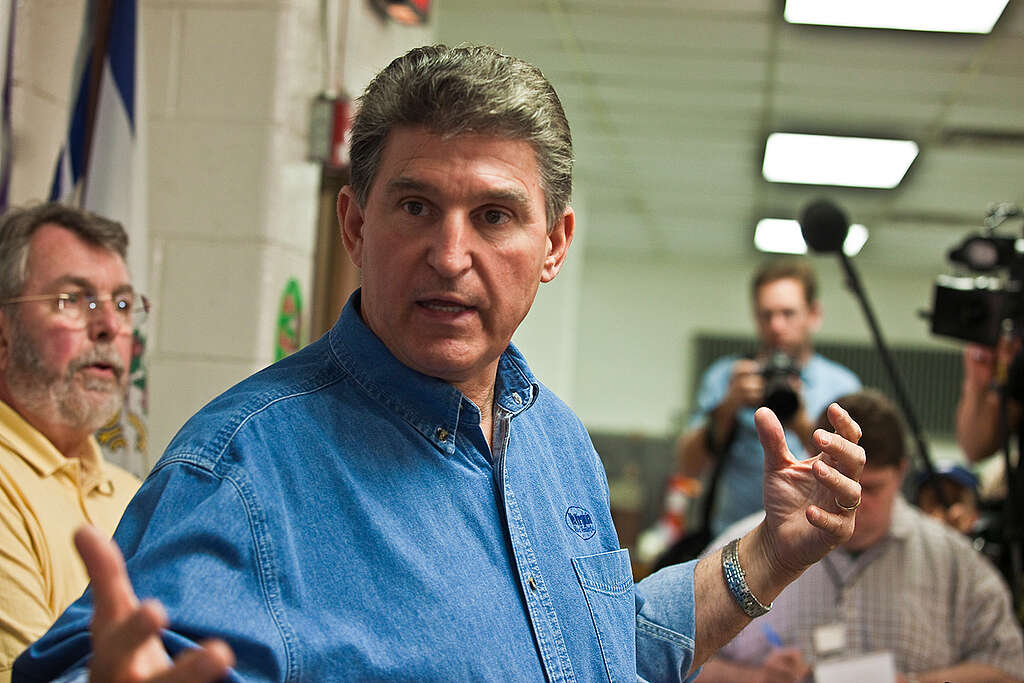
Though Manchin denies this cozy relationship with Exxon, it seems like Exxon’s attention to Manchin has been paying off: Manchin recently stated that he was “very, very disturbed” by any talk of phasing out fossil fuels in the planned reconciliation package.
It may not surprise you to know that Manchin also has some personal conflicts of interest with the prospect of a fossil fuel phase-out. In his 2020 financial disclosure, Manchin reported $492,000 in income for Enersystems—a West Virginia firm which sells coal to energy suppliers—and held between $1 and $5 million in private Enersystems stock. According to the Guardian, as of late 2019, Manchin had more money invested in fossil fuels than any other member of the Senate, Democrat or Republican.
5. “Did we aggressively fight against some of the [climate] science? Yes…Did we join some of these shadow groups to work against some of the early efforts? Yes, that’s true.”
They seem to be flaunting the misinformation campaign that contributed to delayed climate action.
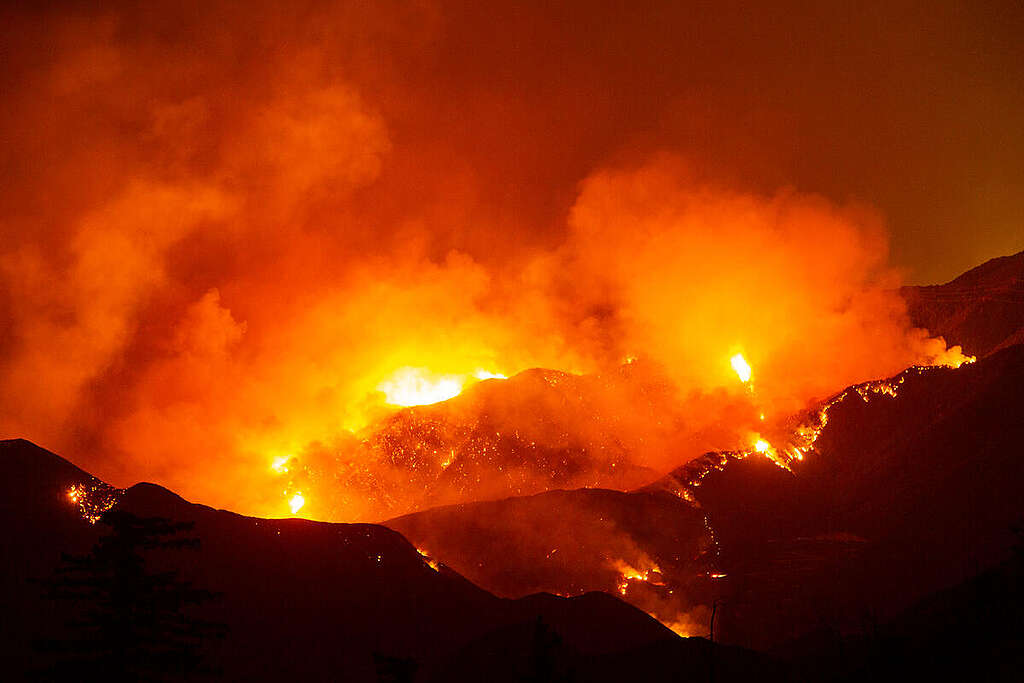
In 1978, James Black of Exxon’s Research & Engineering division wrote an internal briefing paper entitled “The Greenhouse Effect,” outlining that anthropogenic emissions could raise global temperatures and result in serious harms to the planet and humanity. Black even warned Exxon that the timeframe for climate action was narrow, writing that “Present thinking holds that man has a time window of five to ten years before the need for hard decisions regarding changes in energy strategies might become critical.” That analysis was published 43 years ago. In the intervening decades, Exxon has repeatedly mobilized itself to fight against climate science, despite their long-held knowledge internally that they were actively perpetuating environmental damage.
As a result of Exxon’s work to delay climate action, climate-fueled disasters cost the global economy $150 billion in 2019 alone. Between 2010 and 2019, the United States experienced 119 climate disasters that caused damages of $1 billion or more. That’s more than double the previous decade.
6. “We were looking out for our shareholders. We were looking out for our investors.”
Ironically, Exxon’s investors do not seem to be on board with the corporation’s ongoing contributions to the climate crisis. Shareholders recently elected three board members nominated by hedge fund Engine No. 1, who position themselves as dedicated to addressing environmental, social, and governance issues by holding corporations accountable from the inside. Although it certainly does not indicate Exxon is suddenly going to pivot, it does demonstrate that shareholders and investors are becoming increasingly nervous about climate change impacts and Exxon’s contributions.
7. “On something like climate change…that doesn’t affect everyday people’s lives.”
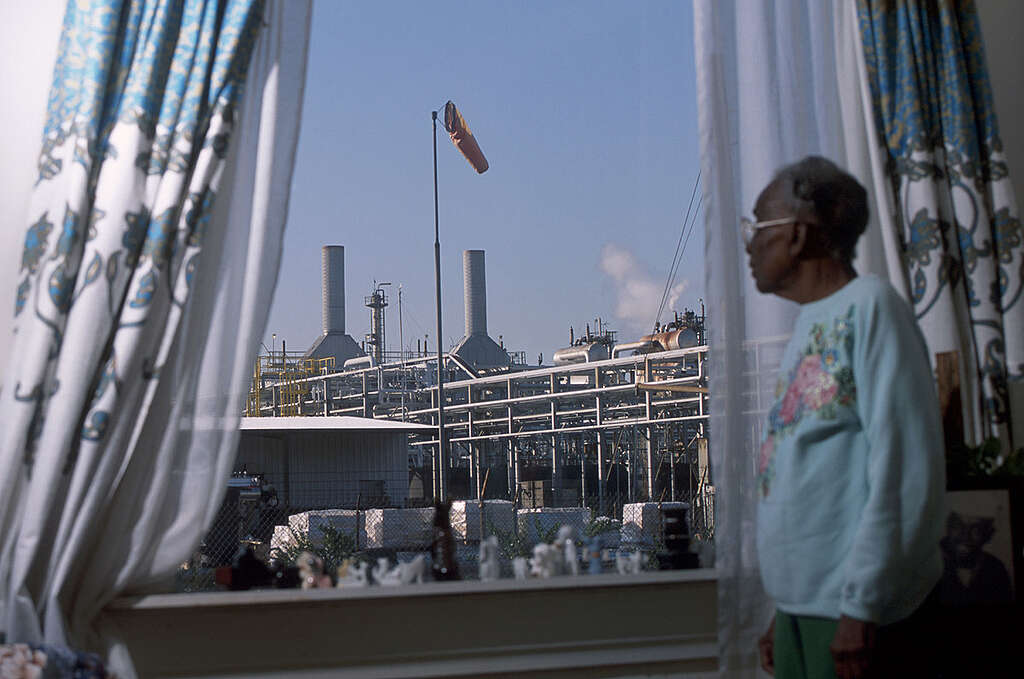
Maybe this was true when Exxon first began silencing climate scientists in the late 1970s, but it certainly is no longer true today. Just in the past couple of years, a scorching bushfire season shocked Australian communities while western Europe and Bangladesh have seen some of the worst floods in recent memory, claiming hundreds of lives.
The effects are even clear within the United States: North America just experienced its hottest June on record, Texas’ deep freeze this February cut millions off from power, raging wildfires continue on the West Coast, and the Pacific Northwest heat wave killed hundreds of people earlier this summer. Just this month, while drought conditions in the Southwest are so severe that states like Arizona were forced to restrict their water usage from Lake Mead, streets flooded in Detroit and heavy rains washed out bridges, flooded streets, and knocked out power across large swathes of New England.
These erratic weather events are no coincidence: the climate is more volatile than before, and these shifts dramatically impact the safety and quality of life for all people, both in the United States and abroad.
8. “It is going to be replete with provisions that are difficult for oil and gas. Take away favorable tax treatment….”
This suggests that Exxon is scared about losing potentially billions of dollars of corporate handouts the industry gets every year.
In addition to the fossil fuel subsidies mentioned above, Exxon has reportedly been lobbying to block recent proposals to raise corporate taxes under Biden. Joe Biden must be willing to look oil and gas CEOs in the eye and tell them their time is up.
9. “You stick to highways and bridges and a lot of the negative stuff starts to come out.”
Uh, what? This may be one of the understated but striking moments in the video, where Exxon lobbyists state that any provisions relating to climate—like emissions reductions—have no place in an infrastructure bill.
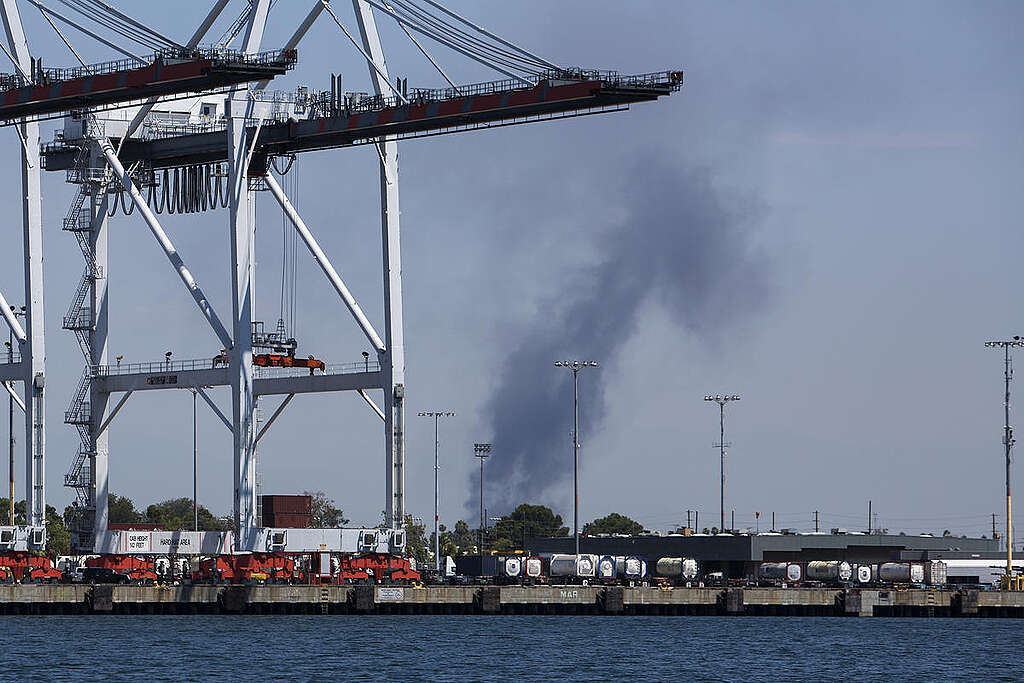
However, our power grid and transportation infrastructure investments all depend on the energy we anticipate Americans will use. Highways, bridges, and other infrastructure proposals imply a great deal about how we expect Americans will be living moving forward. Incorporating climate proposals, from direct emissions reductions to greater funding for public electric vehicle chargers and public transit, is fundamental to addressing some of the structural gaps in infrastructure policy that make it difficult to reduce pollution.
10. “It’s going to accelerate the transition to the extent that I think 4 years from now it’s going to be difficult to unwind that.”
If there’s a silver lining in all of these quotes, it’s this: an admission that if these climate provisions are successfully passed and implemented as part of the Biden administration’s agenda, it will be hard for fossil fuel producers like Exxon to roll back new standards. That’s part of why it’s so crucial that environmental standards are integrated into the finalized versions of the bipartisan infrastructure bill and the Democrat’s planned reconciliation package.
Help us fight back

We are fed up with fossil fuel companies continuing to undermine our democracy and getting in the way of real climate solutions. It’s time that we remind Congress that they represent the people, not big oil, and that climate provisions are essential to avoiding a climate catastrophe.

